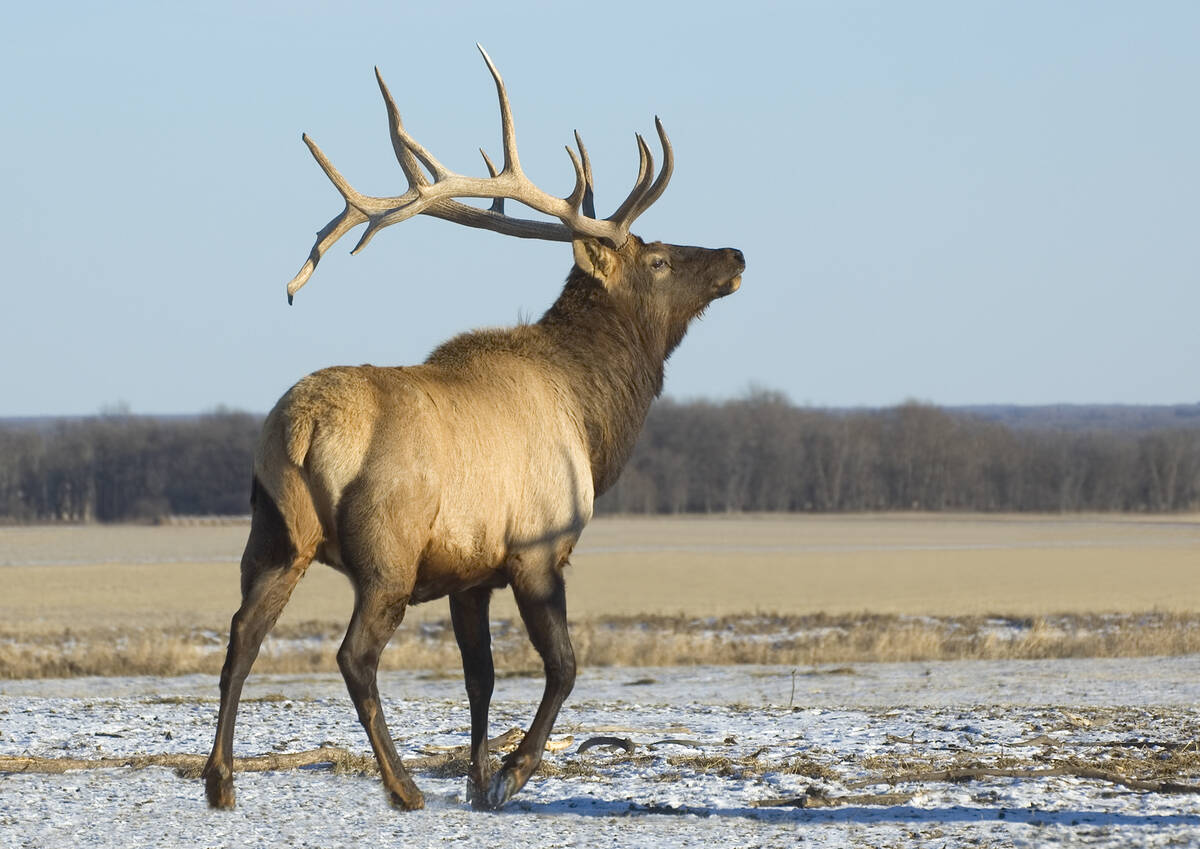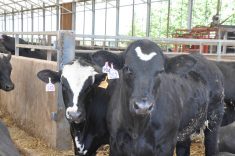Grain Growers of Canada says changes to the capital gains inclusion rate will increase taxes on grain farms by 30 per cent.
The organization released research done along with farm accountants on the same day the federal government introduced its motion to increase the inclusion rate from one-half to two-thirds as of June 25.
GGC and nine other organizations previously lobbied to exempt farmers from the increase, announced in the April budget, citing intergenerational transfer as a main concern.
Read Also

Manitoba Beef Producers take aim at elk surge, feed losses from wildlife
Resolutions at last month’s Manitoba Beef Producers meeting seek help to rein in elk and deer populations, expand fencing supports and improve compensation for wildlife damage.
The Canadian Federation of Agriculture said it was frustrated the changes could undermine those transfers and that Ottawa ignored the calls for further work on the planned changes.
“By announcing the proposed tax changes in the federal budget on April 16 with an effective implementation date of June 25, the government of Canada is not providing Canadian farm businesses with enough runway to fully assess the potential implications of these changes for farm succession tax planning purposes and adjust accordingly,” said CFA in a news release.
The increase of the inclusion rate comes with an increase to the lifetime capital gains exemption to $1.25 million.
The organizations worry the inclusion rate change will neutralize that increase and jeopardize farm transfers.
“By ramming these very significant tax changes through while farmers are in the field planting, we aren’t giving producers enough time to fully assess the implications for their families and their businesses,” said president Keith Currie.
The tax measures are expected to add about $19 billion to federal coffers. Ottawa says provinces also stand to benefit from more than $11 billion.
The GGC research said the inclusion rate change affects farmers’ retirement plans and threatens the long-term viability of family farms across the country.
It found an 800-acre farm bought in 1996 in Ontario would have to pay almost $1.2 million in additional taxes if sold today. A 4,000-acre farm in Saskatchewan would see an increase of more than $900,000 in tax costs.
“With over 40 per cent of farmers nearing retirement over the next decade, this tax increase introduces substantial uncertainty into their retirement planning,” said Andre Harpe, GGC chair and an Alberta grain farmer. “Despite Budget 2024’s title of ‘Fairness for Every Generation,’ this change will actually burden the next generation of farmers, who are already grappling with costly transfers.”
The research also included a joint-ownership case study, using a 2,500-acre Alberta grain farm. Even with two lifetime capital gains exemptions, the taxes on capital gains will rise 29 per cent, or more than $1 million, the document said.
GGC said farmers are often asset rich but cash poor, and they regularly upgrade and expand their operations and equipment.
“A 30 per cent increase in taxes on the family farm also dramatically increases the cost of farms, pricing out many families. This puts the family farm at risk, as the only ones that will be able to afford to pay millions of extra dollars will either be corporate farms or development companies,” said GGC executive director Kyle Larkin.
GGC said Statistics Canada shows a two per cent decrease in family-owned farms between 2016 and 2021. Leaving the inclusion rate where it is could help protect families, it said.
The Canadian Cattle Association and the Canadian Cattle Youth Council also called for implementation to be halted until the matter could be fully studied.
“Our producers and accountants have not had enough time to properly assess the magnitude of implications these changes will have on the beef industry. We urge the government to press pause on this implementation and have discussion (on) the impacts with farmers more fully,” said Nathan Phinney, CCA president. CCA asked to hear from farmers about how the changes will affect them.
The Canadian Chamber of Commerce is among those who oppose the changes.
Meanwhile, in the House of Commons, the motion passed 208 to 118; the NDP and Bloc Quebecois members voted with the government while the Conservatives voted against it.
Conservative leader Pierre Poilievre said higher taxes will hurt the economy and consumers while the Liberals say the issue is tax fairness. He called for emergency finance committee meetings to study the issue.
“In two weeks’ time Justin Trudeau will hike taxes on homebuilding during a housing shortage. He will raise taxes on doctors during a doctor shortage. He will hike taxes again on farmers during a food cost crisis and on small business as Canadians’ paycheques are shrinking,” Poilievre said.
Draft legislation will follow the motion but it isn’t expected to be substantially different.















